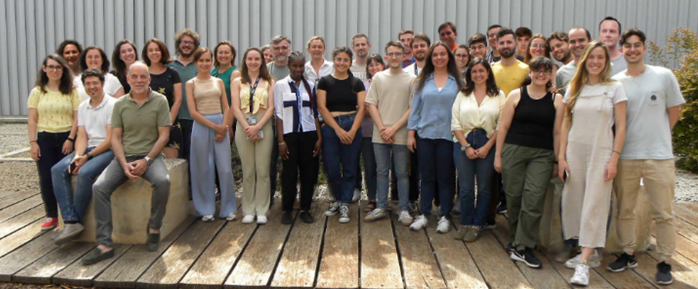
NANBIOSIS Researchers Lead the Way in Innovative Nanomedicine Approaches
Cancer remains a formidable challenge globally, with 19.1 million cases diagnosed in 2020, resulting in nearly 10 million deaths. However, amidst these alarming statistics, a beacon of hope emerges from the field of nanomedicine.
Spearheaded by Professor Jesus Santamaria and his team at the NFP group, part of the NANBIOSIS ICTS Unit 9, groundbreaking advancements in nanotechnology are revolutionizing cancer treatment. Funded by the European Research Council, their efforts mark a significant stride towards more effective and targeted therapies.
“The potential adverse effects (of antineoplastic agents) on healthy cells is the main limitation, in addition to the development of drug resistance by cancer cells.”
—Dr. Jose L. Hueso, Scientific Coordinator of Unit 9
Traditional cancer treatments like surgery, chemotherapy (CT), and radiotherapy (RT) have long been the mainstays of clinical intervention. While effective, their indiscriminate nature often leads to debilitating side effects and the development of dreaded drug resistances in cancer cells. Chemotherapy, in particular, poses significant challenges due to its adverse effects on healthy cells.
This is where nanoscience and nanotechnology come to play. These cutting-edge disciplines offer promising avenues for the development of selective and precise cancer therapies. The work of Prof. Santamaria’s team focuses on leveraging nanoparticles to deliver tailored treatments directly to cancerous tissues while minimizing collateral damage to healthy cells.
Their innovative approach involves the synthesis of inorganic and carbon-based nanoparticles with enzyme-mimicking capabilities. These nanoparticles exhibit a multifaceted response within the tumor microenvironment, from consuming glucose to generating reactive oxidative species. Moreover, they disrupt the antioxidant defense mechanisms of cancer cells, rendering them more susceptible to treatment.
Collaborative efforts with esteemed researchers like Pilar Martin Duque, Luisa de Cola, and Asier Unciti-Broceta further enhance the potential of these nanotherapeutic strategies. Together, they strive to refine nanoparticle delivery systems, protect the catalytic activity in the tumor microenvironment, and engineer anticancer prodrugs using bioorthogonal chemistry.
The implications of these advancements are profound. By harnessing the power of nanotechnology, researchers have the tools to revolutionize cancer treatments. With greater specificity and reduced toxicity, nanotherapies offer renewed hope for patients battling this relentless disease.
As the field of nanotechnology continues to evolve, the potential for personalized, precision medicine approaches tailored to individual patients becomes increasingly tangible. With the expertise of NANBIOSIS ICST researchers at the forefront of this revolution, the future of cancer treatment shines brighter than ever before.

Additional information
The goal of NANBIOSIS is to provide comprehensive and integrated advanced solutions for companies and research institutions in biomedical applications. All of this is done through a single-entry point, involving the design and production of biomaterials, nanomaterials, and their nanoconjugates, along with their characterization from physical-chemical, functional, toxicological, and biological perspectives (preclinical validation).
In order to access our biomedical Solutions, apply here.
NANBIOSIS has worked with pharmaceutical companies of all sizes in the areas of drug delivery, biomaterials and regenerative medicine. Here are a few of them:









